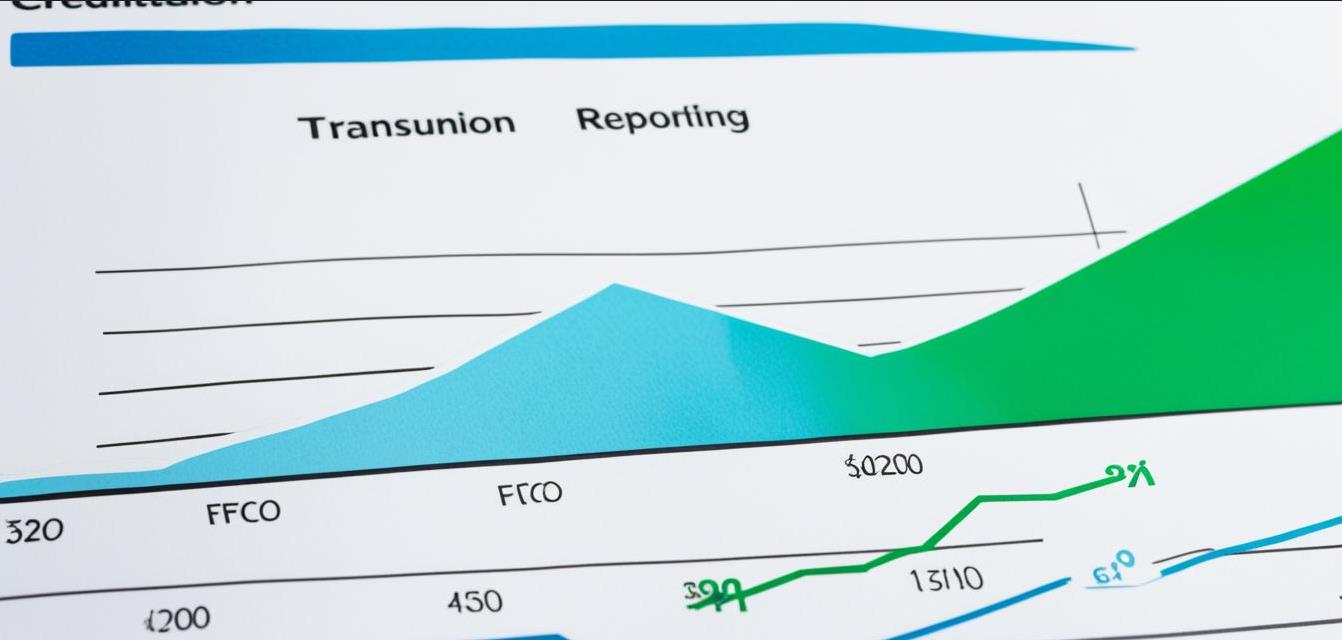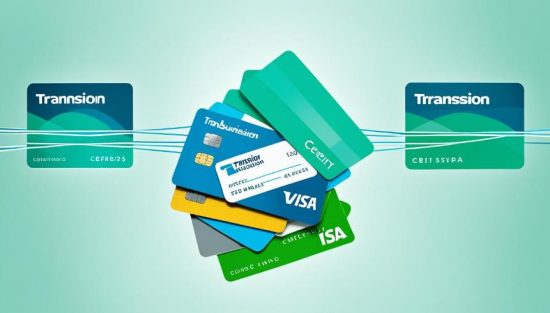
Major Credit Card Issuers That Use Transunion
When it comes to credit card issuers, many major banks rely on Transunion for their credit decision-making process. These banks include industry giants such as Chase, Citibank, and Bank of America. By partnering with Transunion, these institutions have access to valuable credit reports and scores that help them evaluate an applicant’s creditworthiness accurately.
Cards Issued by Big Banks and Their Reliance on Transunion
Major banks like Chase, Citibank, and Bank of America heavily rely on Transunion’s credit data to assess an individual’s creditworthiness. By using Transunion’s credit reports and scores, these banks are able to make informed decisions regarding credit card approvals. The data provided by Transunion allows them to evaluate an applicant’s credit history, payment behavior, and overall financial stability.
Financial institutions understand the importance of using reliable and comprehensive credit information, which is why they trust Transunion as a trusted credit reporting agency.
Retail Store Credit Cards Partnering With Transunion
Transunion’s influence is not limited to major banks; it extends to retail store credit cards as well. Retailers such as Macy’s, Nordstrom, and Walmart have partnered with Transunion to ensure that they can make informed decisions about offering credit to their customers.
By relying on Transunion, these retail store credit cards can assess an individual’s creditworthiness accurately and tailor their credit options accordingly. This enables them to provide opportunities for customers to build credit and enjoy perks and benefits exclusive to their store.

What Credit Cards Use Transunion for Credit Decisions?
Credit card issuers rely on TransUnion, a major credit bureau, to assess applicants’ creditworthiness by evaluating factors like payment history and credit utilization. This helps them gauge financial responsibility and determine approval for various types of credit cards, from travel rewards to cashback options. By leveraging TransUnion’s data, issuers aim to minimize risk and ensure they extend credit to those with strong credit histories and responsible payment habits. This approach benefits both issuers, who make informed decisions, and consumers, who receive fair evaluations based on reliable credit data.
Navigating Through Credit Cards that Prefer Transunion
Tips for Identifying Transunion-Focused Card Issuers
While exploring the vast array of credit card options available, it is essential to identify which issuers have a strong focus on Transunion. These issuers place significant emphasis on Transunion’s data and credit reports when making credit decisions. By choosing credit cards from these Transunion-focused issuers, you can leverage their expertise in utilizing Transunion’s insights.
When searching for these card issuers, consider the following tips:
- Research the issuer’s partnerships and affiliations: Some credit card issuers establish specific partnerships with Transunion, indicating their preference for using Transunion’s data. Look for credit cards that mention Transunion prominently in their marketing materials or on their websites.
- Review credit card terms and conditions: Take the time to read through the credit card terms and conditions thoroughly. Look for references to Transunion or indications that the issuer relies heavily on Transunion’s data during the application and approval process.
- Seek customer reviews and experiences: Online forums and consumer review sites can provide valuable insights into the credit card application process and the credit bureaus used by different issuers. Pay attention to reviews from individuals who mention Transunion’s involvement in their credit card approval or denials.
Why Some Credit Cards May Exclusively Check Transunion
In addition to identifying Transunion-focused card issuers, it is important to understand why certain credit cards exclusively check Transunion for credit decisions. While many credit card issuers consider data from multiple credit bureaus, some prefer to focus solely on Transunion due to various reasons.
Some possible factors contributing to the preference for Transunion include:
- Reliability of Transunion’s credit data: Card issuers may find Transunion’s credit data to be more accurate or comprehensive compared to other credit bureaus. This reliability can influence their decision to exclusively rely on Transunion for credit assessments.
- Partnerships and agreements: Certain credit card issuers may have established exclusive partnerships or agreements with Transunion. These partnerships can result in dedicated data access or specialized risk assessment strategies that are unique to Transunion.
- Risk evaluation models: Each credit bureau utilizes methodology and models to evaluate credit risk. Some issuers may find Transunion’s risk evaluation model to align better with their risk appetite and credit decisions, leading to exclusive reliance on Transunion’s data.
By understanding why these credit cards exclusively check Transunion, you can make informed decisions about which cards align best with your financial needs and credit goals.
Benefits of Applying for Credit Cards Using Transunion
Applying for credit cards that use Transunion can have its benefits. For example, if your Transunion credit report and score are strong, you may have a higher chance of approval for these credit cards. Additionally, being approved for a credit card that uses Transunion can help you establish a positive credit history with this bureau, which can improve your overall credit profile.
Understanding the benefits of applying for credit cards that use Transunion can guide your decision-making process when choosing which credit cards to apply for.
Comprehensive List of Cards that Rely on Transunion

Here, we will provide you a comprehensive list of credit cards that rely on Transunion for credit decisions. Whether you’re looking for travel credit cards, cashback credit cards, or rewards credit cards, this list will help you explore different options that align with your financial goals and creditworthiness.
- Discover it® Card
- Barclaycard Arrival® Plus World Elite Mastercard®
- Capital One® Quicksilver® Cash Rewards Credit Card
- Wells Fargo Propel American Express® Card
And many more! This list is continuously updated to ensure you have access to the latest credit card options that rely on Transunion. By knowing which cards use Transunion, you can make informed decisions when applying for new credit cards.
How to Increase Approval Odds With Your Transunion Report
Your Transunion credit report plays a significant role in the approval process for credit cards that use Transunion. By improving your Transunion report, you can increase your chances of being approved for these credit cards. Here are some tips and strategies to help you enhance your approval odds:
- Pay Bills on Time: Timely payment of bills is crucial for a positive credit history. Make sure to pay all your credit card bills, loans, and other debts on time to demonstrate responsible financial behavior.
- Reduce Credit Utilization: Lowering your credit utilization ratio can have a positive impact on your Transunion report. Aim to keep your credit card balances below 30% of your available credit limit.
- Address Errors and Discrepancies: Regularly review your Transunion report for any errors or discrepancies that could be negatively affecting your creditworthiness. If you spot any inaccuracies, report them to Transunion and the relevant creditors to have them corrected.
- Build a Positive Payment History: Consistently making timely payments over an extended period demonstrates reliability. The longer your positive payment history, the better your Transunion report.
- Limit New Credit Applications: Applying for multiple credit cards or loans within a short period can raise red flags on your Transunion report. Avoid unnecessary credit applications to maintain a stable credit profile.
The Impact of Transunion on Interest Rates and Credit Limits
Transunion not only influences credit decisions but also has a significant impact on the interest rates and credit limits you encounter. Understanding how Transunion’s credit reports and scores can affect these aspects of your credit journey is essential for effectively managing your finances and maximizing your borrowing potential.
Interest Rates
When you apply for a credit card, lenders use Transunion’s credit information to assess your creditworthiness. Your Transunion credit score plays a crucial role in determining the interest rate you will be offered. A higher credit score indicates to lenders that you are a responsible borrower and poses less risk, leading to lower interest rates. On the other hand, a lower credit score may result in higher interest rates or even the denial of credit card applications.
Credit Limits
In addition to interest rates, Transunion also influences the credit limits you are approved for on your credit cards. Credit card issuers refer to your Transunion credit report to assess your creditworthiness and determine the appropriate credit limit for you. A higher Transunion credit score indicates that you have a strong history of managing credit responsibly, making you a more attractive borrower in the eyes of lenders. As a result, you are more likely to be approved for higher credit limits, giving you greater purchasing power and financial flexibility.
Secured and Unsecured Credit Cards: Transunion’s Influence
In the world of credit cards, there are two main categories: secured and unsecured. Both types of cards can have an impact on your credit score, and Transunion plays a role in determining your creditworthiness. Understanding the differences between secured and unsecured cards from Transunion’s perspective can help you make an informed decision about which type of credit card is right for you.
Which is Better for Your Transunion Score: Secured or Unsecured?
The choice between secured and unsecured credit cards ultimately depends on your personal financial situation and credit goals. Secured cards can be a stepping stone to rebuild or establish credit, as they provide an opportunity to demonstrate responsible credit behavior to Transunion and other credit bureaus. Over time, consistent and on-time payments can improve your credit score and potentially qualify you for unsecured credit cards.
Exclusive Features of Transunion-Pulled Credit Cards
Credit cards that rely on Transunion offer a range of exclusive features that can enhance your financial experience. These features are designed to cater specifically to Transunion users, providing them with unique rewards and benefits. By understanding these features, you can make the most of your credit cards and maximize their value.
Rewards and Benefits Geared Towards Transunion Users
Transunion-pulled credit cards offer rewards programs and benefits that are tailored to Transunion users. These rewards programs may include cash back on specific categories such as groceries, dining, or travel. Some cards may also offer bonus points or miles when you use your card for certain purchases. By leveraging these rewards, you can earn valuable incentives for your everyday spending.
Unique Card Offers that Leverage Transunion’s Capabilities
In addition to rewards, credit cards that rely on Transunion may provide unique card offers that leverage Transunion’s capabilities. These offers may include access to credit monitoring services, allowing you to stay updated on changes to your credit report and identity. Additionally, some cards may offer personalized credit-building tools and resources, helping you improve your credit score and financial well-being.
How Different Credit Bureaus Affect Your Card Choices

When it comes to choosing a credit card, the credit bureaus that lenders rely on can have a significant impact on your options. While Transunion is a well-known credit bureau, it’s important to consider the role of other bureaus like Equifax and Experian as well. Understanding the similarities and differences between these bureaus can help you make an informed decision about the bureau that best aligns with your financial goals and credit history.
Comparing Transunion with Equifax and Experian
Transunion, Equifax, and Experian are the three major credit bureaus in the United States. They collect and analyze credit information from various sources, including lenders and creditors. While the ultimate goal of all three bureaus is to assess creditworthiness, each bureau has its own unique reporting and scoring methodologies.
Transunion, for instance, uses the VantageScore credit scoring model to determine credit scores. Equifax and Experian, on the other hand, use the FICO scoring model. These scoring models can result in different credit scores for the same individual, as they consider factors such as payment history, credit utilization, and length of credit history differently.
Transunion Credit Monitoring and Its Perks for Cardholders
Transunion offers credit monitoring services that can be beneficial for credit cardholders. By utilizing Transunion’s credit monitoring, you gain access to valuable tools and features that can help safeguard your financial well-being and provide peace of mind. Here are some of the perks you can enjoy:
- Alerts for Potential Fraud and Identity Theft: With Transunion’s credit monitoring, you receive real-time alerts regarding any suspicious activities or unauthorized access to your credit information. These alerts enable you to take immediate action, such as freezing your credit, to prevent any further damage.
- Credit Score Tracking: Monitoring your credit score is essential for understanding your financial health and identifying areas for improvement. Transunion credit monitoring allows you to track your credit score over time, giving you insight into how your financial decisions impact your creditworthiness.
- Personalized Credit Improvement Recommendations: Transunion provides personalized recommendations on how to improve your credit score. These suggestions are tailored to your specific credit profile, ensuring that you receive actionable insights to enhance your creditworthiness and increase your chances of qualifying for better credit card offers.
Major Credit Score Differences Should be Reviewed
Credit scores can vary significantly between bureaus like Transunion and FICO due to different scoring models and data sources used. Understanding these differences helps in choosing credit cards aligned with preferred bureaus and managing overall credit health effectively.
FAQs on Credit Card using TransUnion
Do banks use Transunion or FICO?
Banks may use both Transunion and FICO in their credit evaluation process. While Transunion provides credit reports and scores, FICO is a credit scoring model that analyzes the information in these reports. Both are essential components used by banks to assess an applicant’s creditworthiness.
What credit score does Chase use?
Chase, one of the major banks, utilizes Transunion credit reports and scores to evaluate credit card applications. While your Transunion score is an important factor, Chase also considers other factors such as income, debt-to-income ratio, and payment history when making credit decisions.
What’s more important, FICO or Transunion?
FICO and Transunion serve different purposes. FICO is a credit scoring model used by lenders to assess creditworthiness, while Transunion is a credit bureau that provides credit reports and scores. Both play a significant role in the credit evaluation process, and it’s essential to maintain a good score with Transunion to ensure favorable credit opportunities.







